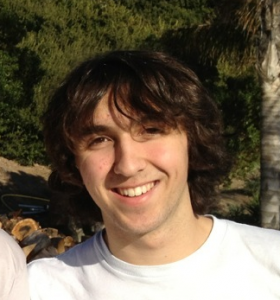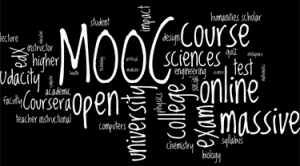Education is a neccessity but it comes in many forms. From classroom to online environments and formal to informal, on thing is true about all its’ forms though, that technology is changing they way we learn. SXSW Interactive features a number of education themed sessions this year. Below, in no particular order, are the 5 you should catch if you can’t catch them all!
Hacking Your Education
Date: Sunday, March 9
Time: 11.30AM-11.45AM
Location: Austin Convention Center, Ballroom F, 500 E Cesar Chavez St

William LeGate received a grant of $100,000 to drop out of school and pursue his passion, courtesy of the Thiel Foundation. For those of you who are unfamiliar, the controversial Thiel Foundation provides grants intended for students under the age of 20. It offers them a total of $100,000 over two years as well as guidance and other resources to drop out of school and pursue other work, which could involve scientific research, creating a startup, or working on a social movement.
William is just 19 and both an entrepreneur and a programmer. At 14, he taught himself Objective C from Stanford’s online courses and created an IOS app development company. Since then he has gone on to create over a dozen apps that have received nearly 5.5 million downloads and have been featured in the New York Times.
This extraordinary individual will be talking about his experience of learning without the bounds of formal education and even giving tips on how you too can take advantage f free resources, which are widely available to better your current skills on a topic or even learn a completely new one.
Learning in a Classroom of the Future
Date: Sunday, March 9
Time: 11:45AM – 12:00PM
Location: Austin Convention Center, Ballroom F, 500 E Cesar Chavez St
Technology has changed the way we communicate and is even changing the way we learn. It is inevitable that soon classrooms will also change to reflect its advances.

Connor Zwick is the 20 year old CEO of Milkshake Labs and another Thiel Fellow. He dropped out of Harvard and when he was just in high school, he created an app called Flashcard + which is used by over 3 millions students around the globe to help them learn more effectively.
Connor will be discussing how technology is going to and is currently changing the way we learn and gain knowledge. He will also discuss the direction that education will be and should be heading in the future.
Great Teachers, & Why They’re Here to Stay
Date: Sunday, March 9
Time: 12:30PM – 12:45PM
Location: Austin Convention Center, Ballroom F, 500 E Cesar Chavez St

In this age of information technology, where almost anything you desire to learn can be discovered online, what is the role of the teacher? Is there a place of them in the classrooms of the future?
Charlie Stigler who is the founder of the education-technology startup, Zaption. He is a Thiel Fellow and will be discussing this along with the importance of good teachers and how the roles of teachers and coaches are changing.
Middleware MOOConomics–Choosing the Right E-Tools
Date: Sunday, March 9
Time: 3:30PM – 4:30PM
Location: Four Seasons, San Jacinto Ballroom, 98 San Jacinto Blvd
 Most people, especially those who are interested in academia, are now familiar with the term MOOC, short for Massive Online Open Courses. They are an excellent way to learn at your own pace and in the comfort of your own home. However, it is still early days yet for this medium of learning and they are still far from the ideal learning environment. Although not impossible to achieve right now, the technical resources and programming requirements needed are often beyond the reach of what most faculty can author on their own.
Most people, especially those who are interested in academia, are now familiar with the term MOOC, short for Massive Online Open Courses. They are an excellent way to learn at your own pace and in the comfort of your own home. However, it is still early days yet for this medium of learning and they are still far from the ideal learning environment. Although not impossible to achieve right now, the technical resources and programming requirements needed are often beyond the reach of what most faculty can author on their own.
This panel will be discussing the production, delivery and consumption of MOOCs as well as the need for new and better tools for MOOCs at all stages including development, delivery, and monitoring.
Using Games to Kick-Start Education
Date: Saturday, March 8
Time: 3:30PM – 4:30PM
Location: Long Center, The Kodosky Donor Lounge, 701 W Riverside Dr
Some may say that the fine arts and digital communication have nothing in  common. In fact, digital communication requires skills learned through study of the fine arts, as well as the skills of using new technology. Some may also say that spending hours playing a digital game isn’t education either, but in fact, digital games combine the power of science, technology, engineering and math skills in a program that fuses the arts and humanities with hands-on experiential learning into complex eco-systems within, and extending beyond, the game space to involve networks of people in a variety of roles and rich interactions. This panel will be discussing how we can use digital games to kick-start education.
common. In fact, digital communication requires skills learned through study of the fine arts, as well as the skills of using new technology. Some may also say that spending hours playing a digital game isn’t education either, but in fact, digital games combine the power of science, technology, engineering and math skills in a program that fuses the arts and humanities with hands-on experiential learning into complex eco-systems within, and extending beyond, the game space to involve networks of people in a variety of roles and rich interactions. This panel will be discussing how we can use digital games to kick-start education.
